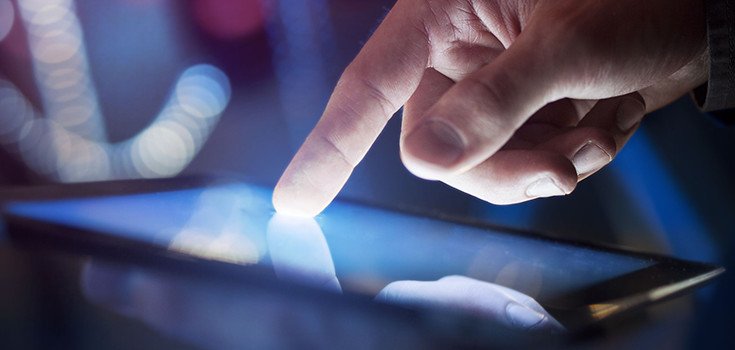Companies are Developing “Safe” Screens that Filter Blue Light Emitted by Electronic Devices

The blue light emitted by the screens on cell phones, tablets, TVs, and computers could be making it hard for us to sleep, and perhaps worse yet, may be damaging our retinas. Manufacturers are trying to look at this as more of an opportunity than a problem.
Enter “safe” screens.
Dutch company Philips unveiled its “SoftBlue” computer screens at the IFA consumer electronics show in Berlin. The company claims “SoftBlue” is easier on the eyes. It’s not alone. Asus and BenQ, along with American firm ViewSonic, are also using the health crisis to introduce their own lines of “safe” screens and turn a profit.
“We are shifting the harmful blue light frequencies, which are below 450 nanometers, to above 460 nanometers,” said Philips’ marketing director Stefan Sommer.
“We’ve been told from a very early age by parents that too much screen time, in front of a TV or a computer, is bad. So a ‘safe’ screen might resonate with consumers,” said Paul Gray, an analyst at IHS Global Insight.
Smartphones, televisions, and computers are all lit up by light-emitting diodes (LEDs), which generate a fairly high intensity of light from a small amount of energy. But blue rays are emitted at the same time, and many scientists agree that these beams can harm the eyes. People that often use their devices in bed may be fouling up their circadian rhythm – the 24-hour biological cycle that guides our sleep and waking patterns. [1]
Read: Could Your Phone be Increasing Your Exposure to Sun Rays?
Researchers at Penn State and Harvard universities have discovered that people who regularly use e-readers before bed don’t sleep for as long.
“Our most surprising finding was that individuals using the e-reader would be more tired and take longer to become alert the next morning,” said neuroscientist Dr. Anne-Marie Chang, whose research was published in the journal Proceedings of the National Academy of Sciences.
Not all scientists are on board with the notion that blue light is damaging our retinas and keeping us awake, though. Some say it’s the amount of time spent staring at electronic gadgets – not the light emitted from them – that’s the problem.
Serge Picaud, at the Institute of Sight in Paris, said:
“We should not be so afraid that we bin all our screens. The light intensities produced by our screens are still relatively weak compared to sunlight.”
French ophthalmologist Vincent Gualino warns that people should not spend more than 6 hours in front of screens. He says that people that are glued to their devices should use special glasses to filter out blue light.
Gualino also noted that children’s eyes are especially sensitive, as their retinas are clear and they “will be exposed over 40 or 50 years.” [2]
Sources:
[1] The Daily Mail
[2] AFP

nice news